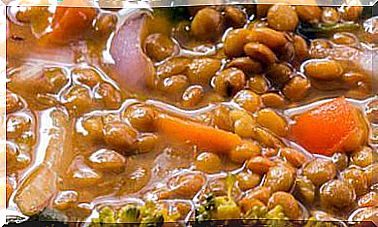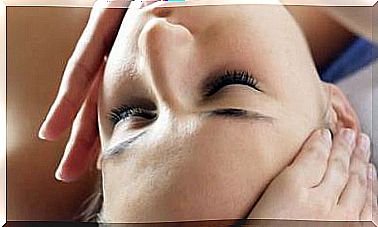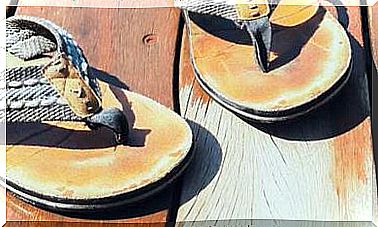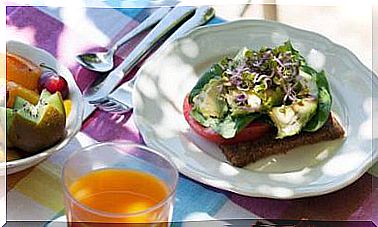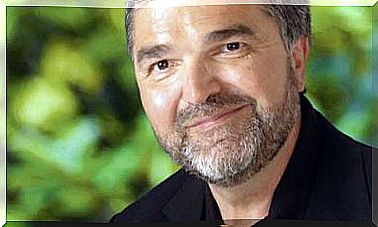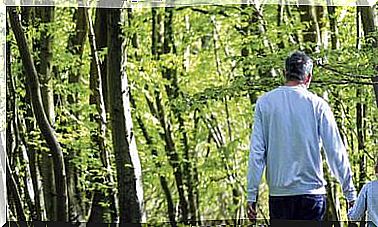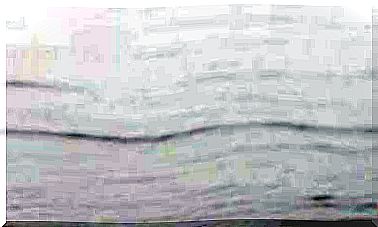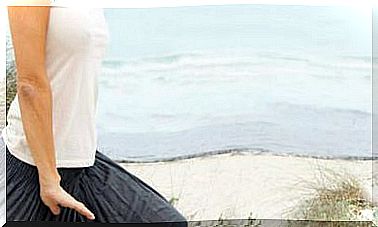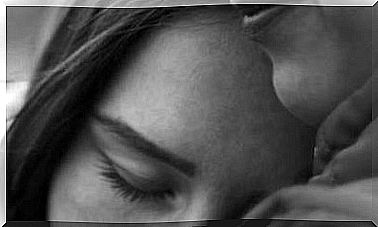How To Treat Depression According To Chinese Medicine
According to traditional Chinese medicine, depression is the result of an energy imbalance. Acupuncture allows correcting it by treating the organs where it originates from emotional causes or lifestyle.

Acupuncture is known primarily as therapy to treat low back pain, to stop smoking, or to control appetite. However, it is successful in other situations that, in principle, we did not imagine. Patients with so-called “psychological illnesses” can greatly benefit from the action of traditional Chinese (TCM) and Tibetan medicine, especially acupuncture.
The way of looking at mental illness differs substantially between TCM and conventional medicine. While the latter analyzes cellular biological alterations (in this case, neuronal), the former observes the functioning of the mind as a result of the action of the most “subtle” device of our person.
Balancing the mind by acting on the subtle energies of the body
In TCM, the yin organs – heart, spleen, lung, kidney and liver – are also called “treasure organs”, because they collect or store the most subtle and important essences that we take with food. These subtle essences enter the energetic circulation and nourish the mind.
An energetic alteration in any of these five organs can be, therefore, responsible for a mental disorder. For this reason, TCM never treats a psychological disease the same, that is, it does not have a magic formula for each disease, but rather analyzes which organ is responsible for that condition and treats it.
Organ disorders
Thus, for example, the stagnation of energy in the liver causes depression with frustration, a swollen belly, contractures and irregular periods. When yang is rising in this organ, it leads to worry, dry mouth, tension, headache, premenstrual syndrome and constipation.
If the unbalanced organ is the heart, it causes depression with chest tightness, palpitations, poor appetite, and cold feet. An excess of phlegm causes depression to be accompanied by anxiety,
insomnia or excessive dreams, nausea and mucus. And yang deficiency is reflected in depression with tiredness, cold, listlessness, palpitations and easy fright.
Yin deficiency in the kidney causes depression with palpitations, anxiety (worse at night), restlessness, insomnia, tinnitus, night sweats, and dizziness, usually in middle age.
The most frequent psychological imbalances that can be treated with acupuncture are anxiety, bipolar syndrome, sleep disturbances or attention deficit, and also depressive syndrome.
The types of depression
The depressive syndrome is characterized by changes in mood, with sadness in greater or lesser degree. There may be changes in behavior, in the way of thinking, despair, mental dullness, loss of self-esteem, hypochondria, insomnia, lack of appetite, lack of concentration …
The intensity is important, as it helps to differentiate it from the “depressed” feelings that we all have at some point and that are part of our normal existence.
Some people may have an altered genetic basis. The diagnosis is endogenous depression, due to neuronal malfunction, and modern drugs may be indicated. They are cases of deep depression. Fortunately, the least frequent.
Reactive depression is the most common type and does not always improve with antidepressant drugs. It is called like this because the person becomes depressed as a reaction to a situation or way of seeing things and four basic types are distinguished:
- Dysthymia, a less severe but more chronic form of depression, influenced by having a traumatic or deprived childhood.
- Adaptive disorders, which appear when you are not able to adapt to situations such as the loss of a loved one or a job.
- Seasonal affective disorder, influenced by the change of season or lack of sun.
- Bipolar disorder, in which very extreme depressive and optimistic seasons alternate.
Matter of time?
The reactive depression tends to progress toward healing, but can also worsen. There are those who are imprisoned in a vicious circle from which it is difficult to get out, sometimes it even seems that they do not want to, as if they had “settled in”.
Traditional Chinese medicine considers emotions and stress responsible for the appearance of an “energy stagnation”, especially of liver energy. This situation, so common in our world, can trigger the onset of depression.
In addition, over time the situation can change, and go from what is known as an energy situation of fullness or excess, to another of deficiency or emptiness that, in the long run, ends up affecting the energy of the spleen.
The influence of diet
Diet can contribute to the development of a depressive syndrome. For example, a diet with abundant mucus-generating foods (milk and derivatives, sweets or industrial pastries) can generate what in TCM is known as “phlegm”, a pathological element of the first order that, due to its characteristics of viscosity and stickiness, hinders the free energetic circulation of our body.
When this happens the symptoms of depression are accompanied by dullness, heaviness and mental confusion.
It is also easy to eat a poorly nutritious diet, for example by cooking with a microwave oven, or by using food from conventional agriculture (not organic). All these cases will require a dietary correction.
Tiredness can influence much more than you think. How many people are forced to work inhuman schedules and end up exhausted day in and day out, after their working day. This leads to a deficiency of kidney energy, responsible for a flowery picture of symptoms, among which is depression.
Kidney energy deficiency is also present in depression in older people.
Subtle emotions and energies
In the same way that a mistake in the diet can affect the balance of an organ and promote an emotional imbalance, a negative emotion that becomes dominant can alter an organ and lead to other symptoms.
In Chinese medicine, emotions are considered to cause energy blocks that can lead to depression. Awareness helps undo them.
Anger, frustration, resentment or hatred are the most difficult emotions to channel, since their expression is not socially accepted. When it remains inside us, it produces an energetic stagnation of the liver. This can lead to a rise in liver yang, responsible for depressions such as those accompanied by severe headaches.
Sadness energetically depletes the heart and lung. It is a frequent cause of the type of depression that appears after a loss or separation.
Excess worry also blocks the free energy circulation of the body, especially the spleen. This organ is capital in traditional Chinese medicine, as it belongs to the “earth element”, the basis and energetic support of the person.
Guilt can block the energy of the heart. Often it appears after the loss of a loved one, thinking that they have not been taken care of enough, that more time could have been spent with them, etc.
Acupuncture treatment
Each situation will therefore require a personalized treatment depending on the affected organ. Acupuncture will also treat a different set of points in each case.
Possible causes are reflected in the pulse, so palpation of the radial artery at the wrist is an extremely important diagnostic aid in acupuncture. A tense pulse, as if we were feeling a wire, is typical of people who have anger as a cause of their depression, for example. On the other hand, a pulse that transmits the sensation of density is typical of an excess of “phlegm”.
The time it takes to cure a problem depends on the time that it has been evolving, and on the effort of the patient to modify their lifestyle, in addition to the expertise of the acupuncturist.
Medicinal plants for the mood
Besides acupuncture, herbal medicine is another therapeutic tool in Chinese medicine. These plants are the most common in their formulas against depression:
- Xiang yuan (Fructus citri medicae): this fruit has the property of eliminating stagnation and excess mucus and phlegm. It is important in formulas to treat depression by relieving liver stagnation.
- Fo shou (Fructus citri sarcodactylis): harmonizes the energy of the stomach and spleen. It is usually used, together with the previous one, when these are the organs responsible for depression; it is used when discouragement is accompanied by phlegm and generalized energy stagnation.
- He huan hua (Flos albiziae): the flower of this tree belongs to the category of plants that calm the mind, which is why it is used in formulas for depression accompanied by anxiety and insomnia.
- He huan pi (Cortex albiziae): the bark of this tree is useful to treat discouragement caused by a stagnation of energy in the liver and heart.
- Yuan zhi ( Radix polygalae ): This calming root has an effect that in TCM is called “opening the mental holes.”
- Mei gui hua ( Flos rosae rugosae ): its flower has the virtue of improving mood problems and is commonly used for its pleasant aroma and flavor.
The alternative treatment of depression with traditional Chinese medicine is worth it, because it means healing and, in addition, doing without drugs. It is very important to remember that the abandonment of medications should be done slowly and progressively, and not wanting to “burn stages” against medical criteria, as it would be counterproductive to health. In any case, starting the natural path is always advisable.
